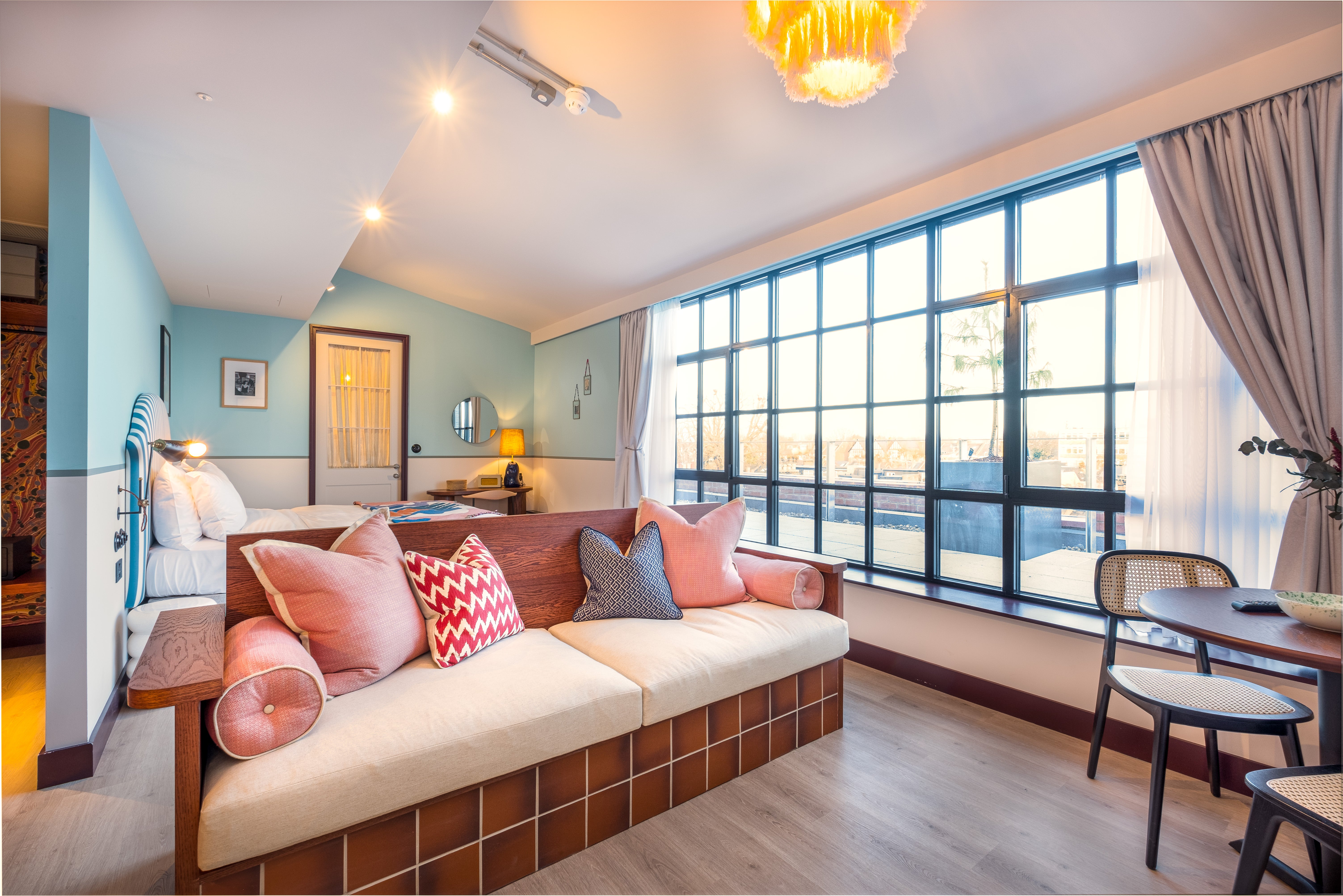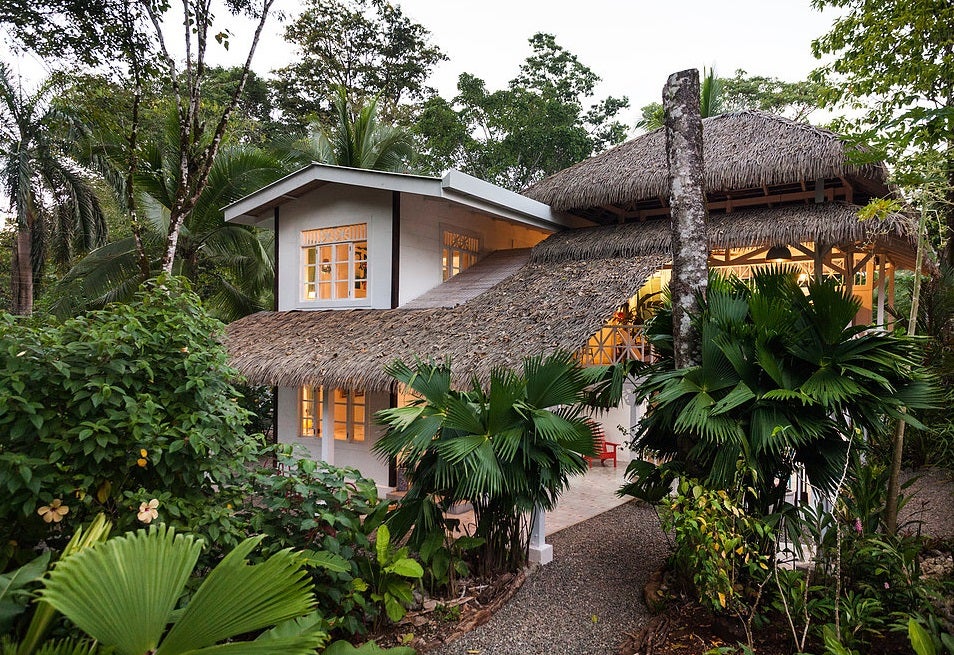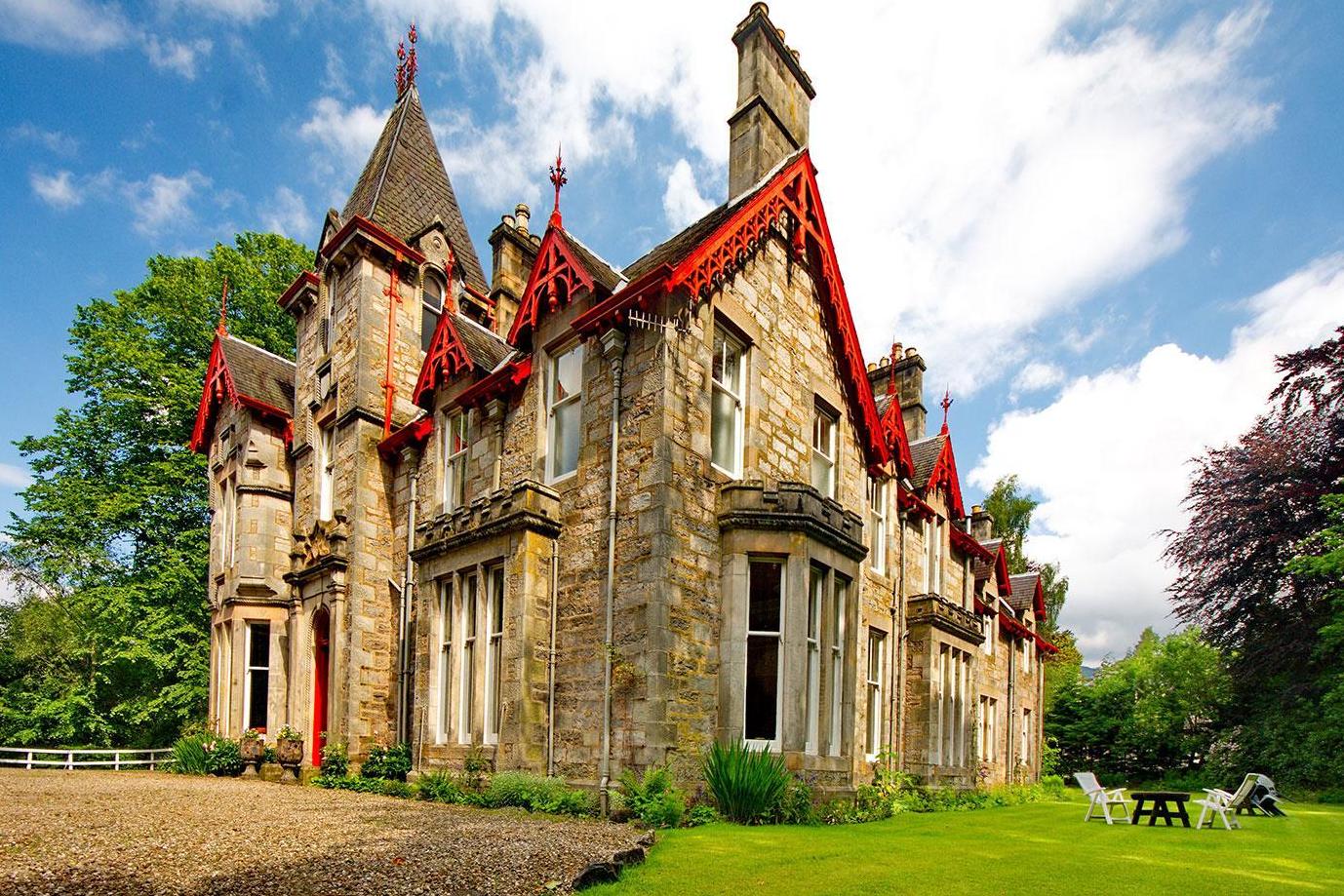The Independent's journalism is supported by our readers. When you purchase through links on our site, we may earn commission.
How to spot the real deal when it comes to ‘eco’ hotels
Hero hangouts with big hearts and impact-motivated heads are on the rise, rejoices Juliet Kinsman. But we need to remember that some green claims are only skin-deep in this new era of ‘performative sustainability’

Your support helps us to tell the story
This election is still a dead heat, according to most polls. In a fight with such wafer-thin margins, we need reporters on the ground talking to the people Trump and Harris are courting. Your support allows us to keep sending journalists to the story.
The Independent is trusted by 27 million Americans from across the entire political spectrum every month. Unlike many other quality news outlets, we choose not to lock you out of our reporting and analysis with paywalls. But quality journalism must still be paid for.
Help us keep bring these critical stories to light. Your support makes all the difference.
This Earth Day, let’s celebrate the many eco-friendly hotels bursting onto the scene, from Scotland to Slovenia, Scandinavia to, ugh, Saudi. Yet I urge you to stay alert to the niggle that many hosts are simply savvier at using the right labels to position themselves greener. Beware “performative sustainability”, as a pal dubbed the next-generation of smart-talk, same-walk zeitgeist brands doing the bare minimum, yet manipulating their modest efforts into head-turning haloes.
The challenge is that the term “ecologically friendly” is too loose. In these greenwash-riddled times, it's important to check in with what “eco” really stands for. As I previously mused in this article on playing hotel eco-detective, it derives from a German term coined by a 19th-century zookeeper, referencing the study of life. We need to verify exactly how a hotel is dramatically reducing water and energy use, actively boosting biodiversity and soil health, promoting accessibility and inclusivity, showing respect for Indigenous peoples, ensuring their supply chain consists of local products, services and purchases and minimising economic leakage. Whew. That's a lot to process.
It’s especially hard to be eco in concrete jungles, so I was eager to visit Room2, which recently opened in Chiswick. The architecturally nondescript brick building in a genteel West London suburb may not have sparked love at first sight, but its pretty Arts & Crafts-inspired suites with Granby Workshop and Maiden Marbling details, plus fishing-net-upcycled carpets, is appealing. Powered by renewables, it declares itself “the world's first fully net zero ho(me)tel” – whatever that means. They deserve praise for showing how they do things more responsibly in terms of the causes of the climate emergency. It’s hard not to roll eyes, though, when the receptionist says you are “helping save the planet just by staying here” or reading woolly website declarations such as, “The building runs on electricity only, meaning no fossil fuels are burnt to power the building”. Guys, I hate to break it to you, but we might need to have a chat about how a lot of electricity is generated.

If I were to manifest a mythical eco-city hotel, it would have a regenerative farm on the roof, tended by ex-offenders, where they grow everything for a vegan menu alongside carbon-sequestering super-plants and they host nature lessons for inner-city kids. That would be worthy of guests feeling like proper planet-saving activists, I reckon. At least Room2 is raising the bar with its technical talk. A hub in the lobby invites us to poke at interactive screens, Science Museum style, to better understand every facet of their creds. Geeking out on their ground-source heating and triple-glazing and insulation has the potential to prompt paradigm shifts when engaging with their hospitality. Shame about the fake living wall above (quite possibly the epitome of “performative sustainability”).
The challenge in the eco-hotel conversation is that city-based real estate will always struggle to rival off-grid, nature-positive, community-based-tourism bamboo huts, right?
We can’t just fall for a nice picture of a leaf on websites
Ecotourism enthusiasts, let’s keep lifting the lid to comprehend the true mechanics. Bamboo straws and organic shampoo in refillable bottles aren’t enough. We need to evaluate the long-term carbon footprints of construction, the social impact of all aspects of the operations, and question the integrity of ownership if decision-making doesn’t involve all community stakeholders. We can’t just fall for a nice picture of a leaf on websites.
Transparency is key. Hosts articulating the science behind their sustainability is a winning indicator. Poking around waste-processing anaerobic digesters, laundry-detergent dosification and fat-filtering kitchen plumbing opened my eyes to what makes Cayuga Collection hotels in Costa Rica, Panama and Nicaragua eco. Their back-of-house tours reveal how much this management approach invests in the wellbeing of staff. A significant metric for sustainability is how much a hotel employs from the immediate community, how long staff have worked there and how ownership looked after their humans during the pandemic.

What else to weigh up? How we are travelling, how green a destination is, who we are giving our money to. Slovenia is always a compelling destination for anyone seeking positive-impact properties. They’ve long been switched on to talking about energy use and emission control. Bohinj ECO Hotel has an adjoining water park Aquapark Bohinj, which acts as a giant heat-collecting energy station. For less leisure-centre vibes I prefer their new neighbouring sibling, Sunrose 7, for its aesthetics.
Bhutan, the world’s only carbon-negative country, models a laudable less-is-more approach to hosting visitors. Protecting trees is mandated in their constitution, so you can hike away in their forests, knowing you’re never a nuisance. Stand-out stays include Bhutan Spirit Sanctuary, a dzong-inspired hotel in Neyphu Valley, and guesthouses bookable through MyBhutan.
The case for supporting upmarket eco-businesses is they can work wonders when it comes to paying it forward
Promoting high-cost low-impact tours could seem elitist and exclusive. The case for supporting upmarket eco-businesses is they can work wonders when it comes to paying it forward, thanks to a bigger-spending clientele. Grootbos is in South Africa is a saviour of flora and fauna species galore and a cultivator of precious entrepreneurial economic opportunities. Yes, SA has a coal-powered national grid, and we have to burn fossil fuels to get there. Once you’re at this nature reserve drinking fine wines though, your good times do tremendous good. You know a hotel is one of the nice guys when it’s a member of the Long Run, a non-profit collection of conservation-dedicated lodges. Over in Zambia, brand new biophilic-designed Chisa Busanga Camp is an eco delight, yet way out of the budget of typical eco-warriors. At least sybarites enjoying a stay in one of Green Safari’s solar-powered weaver-bird-nest lodges for responsible safaris is seriously helpful to local people and place.
For my next holiday, I’m seeking friluftsliv in Norway. A pursuit of “open-air living” will include staying at simple, locally owned properties such as fjord-side 29/2 Aurland. Here’s to spending time in a country that tops league tables for ethics, equality and environmentalism, too. And as soon as the world’s first energy-positive hotel, Svart, finally opens, I’ll figure out the greenest way to get to this innovative Arctic hangout at the foot of a glacier.

Eco-seekers based in Blighty may deem straying beyond borders contradictory. So what constitutes greener accommodation close to home? Glamping on Knepp’s 3,500-acre estate in lowland Britain means ecotourism on this decommissioned dairy and arable farm from Isabella Tree and Charlie Burrell funds their “wilding” endeavours.
What if you have a preference for traditional hotel style and service, and charming interiors? The vegan ways of Saorsa 1875 have me lusting after this animal-eschewing plant-based cutie in Perthshire. Knowing they’re linked to fewer methane emissions (this greenhouse gas is 28 times more potent than carbon dioxide) means they’re less guilty of cranking up the global-warming thermostat.
I love the idea of regenerative endeavours – take the Headwaters Eco Lodge on Lake Whakatipu in New Zealand which generates 105 per cent of energy they use. But it’s hard to justify the fuel combustion needed to get me there, hey? Best to aim for catching a train to Scotland or Slovenia for a truly eco escape...
Join our commenting forum
Join thought-provoking conversations, follow other Independent readers and see their replies
Comments